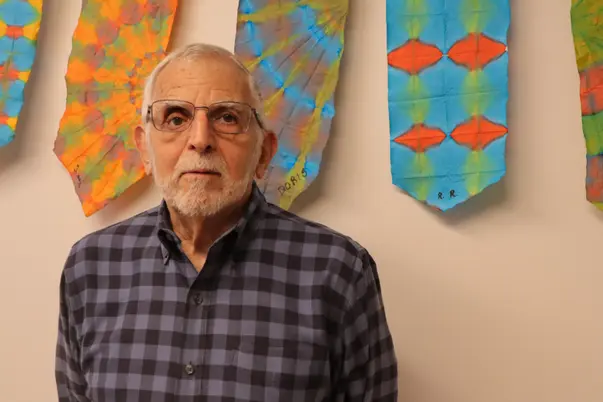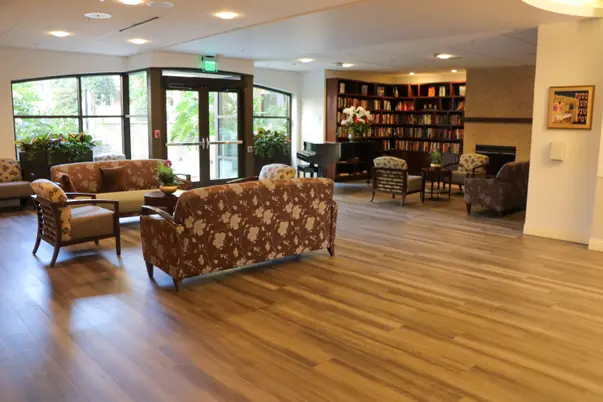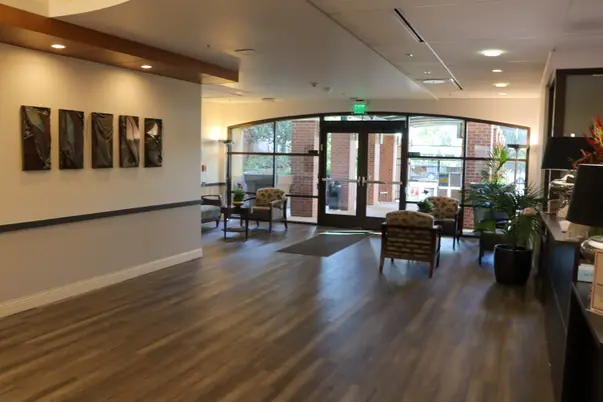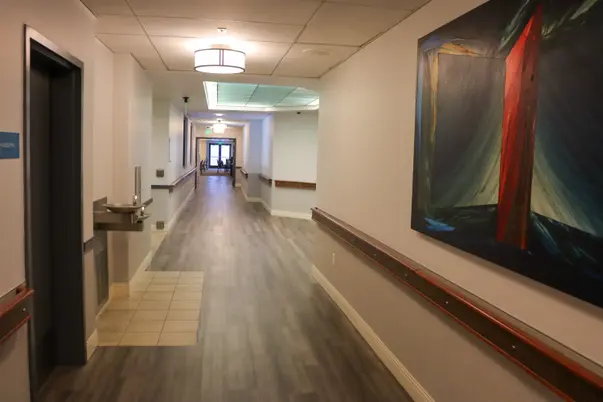Making Lemonade Out of Lemons at Los Angeles Jewish Health


Making Lemonade Out of Lemons at Los Angeles Jewish Health
When long-time San Fernando Valley resident Rick Munitz, 85, took a fall in his backyard, he narrowly avoided serious injury. It was, he recalls, a sign that it was time to make a move.
“I had a Meyer lemon tree that was located on a slope in the yard, and I lost my balance going uphill toward it and took a fall. Fortunately, I landed safely, but it made me realize how lucky I’ve been not to have hurt myself at my age,” Rick says.
The tumble served as a catalyst for Rick to explore alternate living options – a search that ultimately brought him to Fountainview at Eisenberg Village, one of Los Angeles Jewish Health’s premier independent living facilities. He moved in this past July.
“From the moment I walked in here, there was a feeling of belonging,” he recalls. “Fountainview is more than an apartment building; it’s a community.”

For Rick, staying in the Valley made sense: It was where he and his late wife, Judy, had built a life for themselves and their family. A native of Milwaukee, Rick moved to Los Angeles with his parents in 1945 and attended Fairfax High School before marrying Judy in 1958, when he was 19 and she was 18. In search of more affordable housing, the couple put down roots in Woodland Hills, raising two kids, Risa and Benjy. Rick also had ties to the Westside – for four decades, he was an English teacher and assistant principal at Beverly Hills High School – but home was on the other side of the hill.
“I knew I wanted to stay local, and Fountainview was the best option for me,” he says. “There’s so much to do, and I’ve been trying it all: playing bingo, joining a men’s group, going to Rabbi Ron’s classes every Thursday, and attending Shabbat services on Friday nights. I’ve met lots of people, and they’re all incredibly welcoming.”
His peers have also provided an important support system during a particularly sensitive time. “My son, Benjy, and his family live in Israel, and I have three Israeli grandchildren who are serving in the army during the war in Gaza,” he says. “Many people here have a connection with Israel, and they have been very nice about expressing concern for me and my loved ones.”
Rick’s daughter, Risa, and her husband live in Westlake Village; she volunteers at Fountainview, teaching a crocheting class every week, which Rick happily attends. “It’s such a joy for me to watch her teach, and to be able to spend time with her and with her two kids – my local grandchildren, who come to Fountainview to visit,” he says.
Although he has only recently taken up residence at Fountainview, Rick was already somewhat familiar with the Eisenberg Village campus – his mother, who had advanced Parkinson’s disease, lived in the [now closed] Max Factor Family Foundation Building until she passed away. “I came to see my mom every week,” he says.
In the months since he moved in, Rick has been refamiliarizing himself with the campus he used to visit. “I go outside and stroll around every day, and it’s wonderful because it’s flat here, so I can walk easily,” he says. “It’s much safer than my old backyard – and, if I want lemons, I can just go to the supermarket!”
_______________
A New Look for Fountainview at Eisenberg Village
At Los Angeles Jewish Health, we have prided ourselves on providing excellence in senior healthcare for more than a century. Our commitment to offering residents the very best includes ensuring they have access to well-appointed, up-to-date facilities. With this in mind, we recently upgraded Fountainview at Eisenberg Village, our premier independent living community in the San Fernando Valley.
With input from Fountainview residents and the support of generous donors, we installed gorgeous new carpet and flooring, painted walls and ceilings, and added modern wallpaper designs. Kudos to our hardworking staff and vendors, who undertook a labor of love in making the renovations. Our residents are thrilled with the results!


